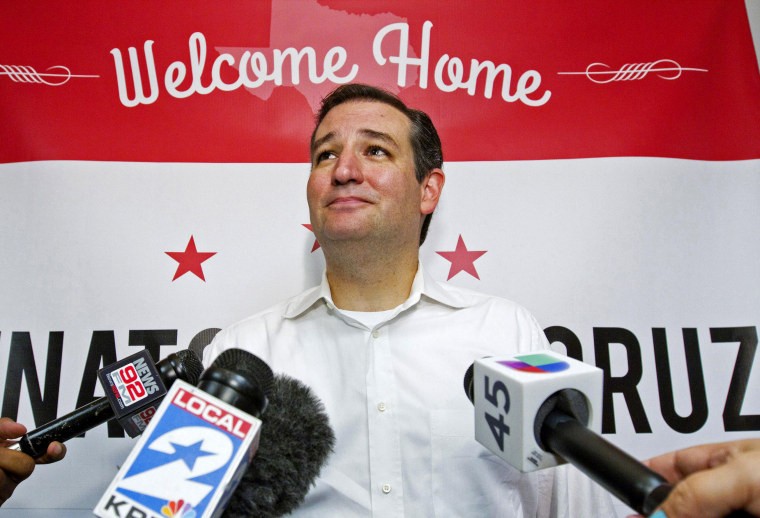Just a decade ago, Democrats were the majority of Texas’ congressional delegation in the House. The Republican representatives then were the business-friendly, moderate types.
That is no longer the case.
The change in the political culture that gave birth to the likes of Ted Cruz comes down to one man: Tom DeLay. And now Cruz is enjoying the fruits of DeLay’s labor.
In 2002, Republicans won the Texas state legislature for the first time in 130 years. Following that election, Tom DeLay mobilized his state’s Republican politicos to redistrict. The previous round of redistricting for Texas and all other states took place in 2001.
It was an ugly political battle that reached the Supreme Court. In the end, however, DeLay’s plan was successful. Democratic influence was minimized while Republicans were packed into districts leading a rightward drift. The groundwork was set for a Republican conservative movement to filter its way from the local to the national.
The effects of that redistricting began to emerge in 2004 when Republicans gained six congressional seats and became the majority delegation. At the local level, the legislature also expanded its Republican voice and moved further right. By the 2010 midterm election Texas had the local political infrastructure in place to propel the Tea Party movement. And by 2011, the latest redistricting round institutionalized the Tea Party.
This is not to say that Texas would have remained in the hands of Democrats had it not been for DeLay’s redistricting push. But had the 2001 lines not been redrawn, there would have been a moderating check to far-right Republicanism. DeLay moved Texas away from the Bush and Rove style of politics that characterized Texas in the 1990s. By 2012, that era of politics was completely wiped away when Kay Bailey Hutchison left office and was replaced by Ted Cruz.
But the junior senator from Texas did not come out of nowhere, and his election was not a fluke. He rose from a political infrastructure that had been in the making for a decade. Cruz then harnessed this advantage, along with its accompanying cultural movement. All the while he was observing an ultraconservative brand of politics in Texas that he could export.
And perhaps not surprisingly, Cruz’s political style looks a lot like DeLay’s. As majority leader, DeLay was infamous for exacting rigid party discipline. There’s a reason why his nickname was "The Hammer."
In the lead-up to the government shutdown Cruz attempted to marshal the type of party discipline that would make the Hammer proud. That discipline ultimately folded, but not before Cruz was able to shut down the government and keep it closed for more than two weeks.
Cruz’s quest to punish the president by defunding Obamacare is also straight from the DeLay playbook.
In the late 1990s, DeLay was obsessed with bringing down Bill Clinton through the Lewinsky scandal. Even as Republican House Speaker Newt Gingrich and House Majority Leader Dick Armey began to ease up on Clinton’s impeachment, DeLay drove them forward. Cruz’s screw-turning of the Republican leadership, namely Speaker Boehner and Senate Minority Whip John Cornyn, was similar.
Obamacare and the Lewinsky affair are worlds apart, but they were both vehicles to rally Republican partisans against a Democratic executive. Cruz, like DeLay, has demonstrated a single-minded desire to punish the executive, regardless of the cost to the nation and to the stability of the political system.
For those outside of Texas, Cruz is an enigma. In Texas there’s nothing extraordinary about him. It’s all in the family.
Victoria DeFrancesco Soto is a fellow at the Center for Politics and Governance at the LBJ School of Public Affairs at the University of Texas and an MSNBC contributor.
